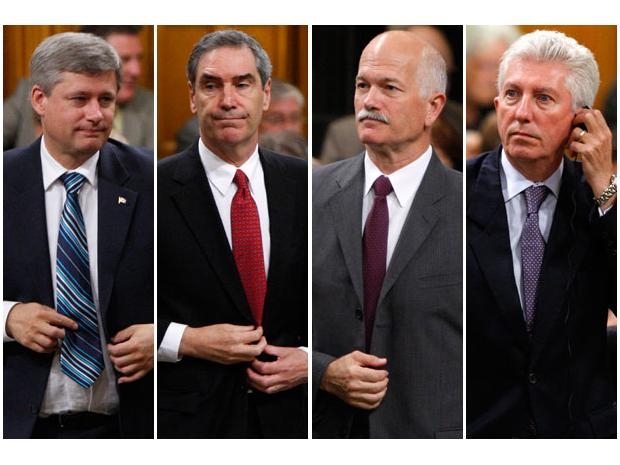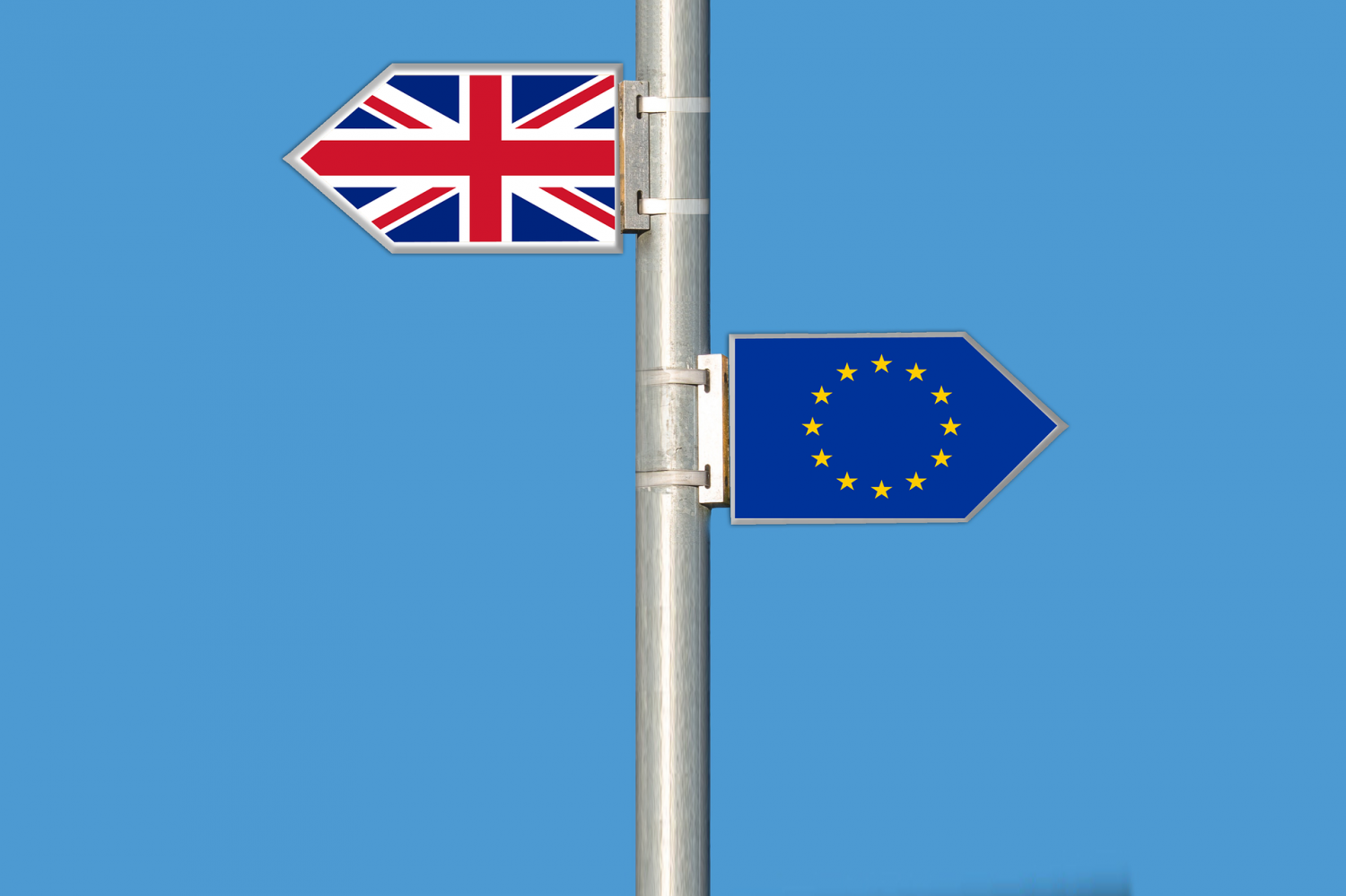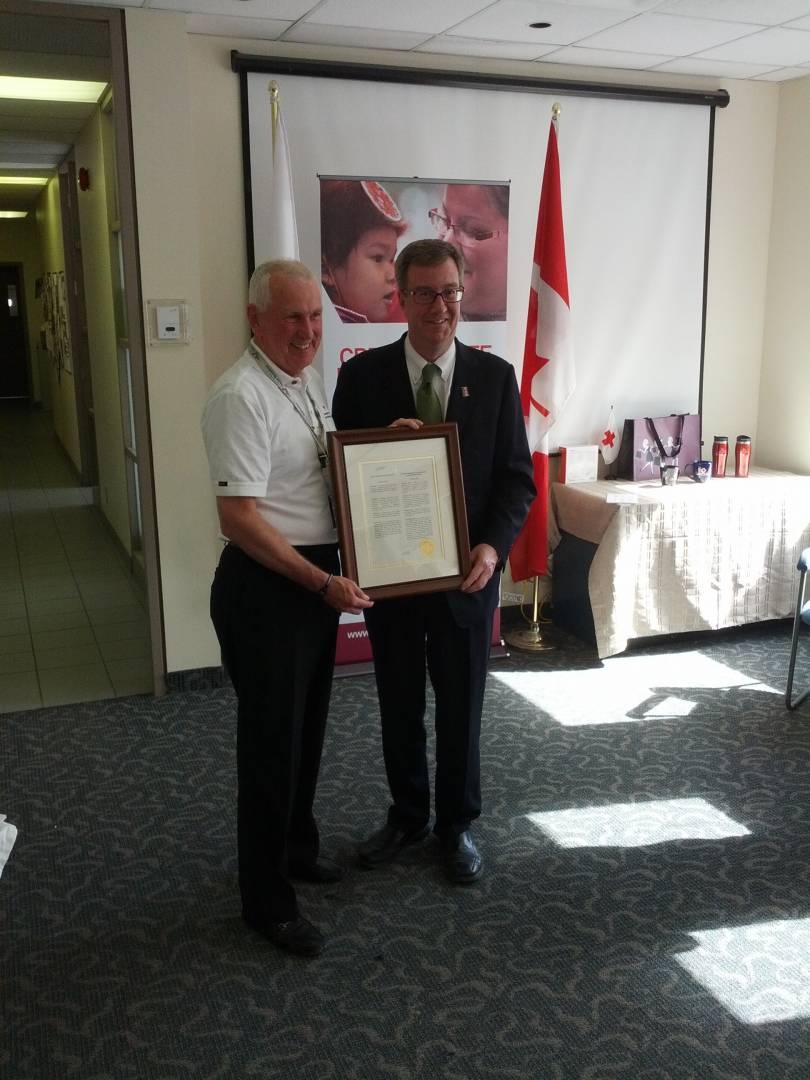
Assessing the English Debate: Who won? Call it a draw.
How should we assess the only English language debate in this year’s election campaign? My first impression is that Harper won, although not decisively. If it was a boxing match and Stephen Harper was the defending champion, he would win by virtue of it being declared a draw. The other leaders presented themselves coolly and competently for the most part. But no one was able to pose a question for which Harper didn’t have a ready answer. No one was able to decisively shape a debate that exposed Harper as uncaring, undemocratic, corrupt or incompetent. Gilles Duceppe came closest to doing so when he reminded Harper of the letter he was prepared to sign in 2004 to then Governor General Adrienne Clarkson of his readiness to form a coalition with he and Jack Layton to defeat the Martin Liberal government. Duceppe’s question was too direct and the subject matter too specific for Harper to answer with vague generalities. So instead, he insisted that he never considered forming such a coalition. Although both Duceppe and Layton both repeatedly claimed this simply wasn’t true, there was nothing definitive to which they could point. Within minutes the topic seemed exhausted and Harper emerged unscathed from the exchange.
Indeed Harper’s ability to deflect questions and fend off the attempted knock-out blows from the other leaders was one of the debate’s defining outcomes. His strategy was simple, but effective: appear prime ministerial, all the while preaching a familiar formula. Economic growth is fueled by lower taxes. Important social programs can only be sustainably funded through steady economic growth. Establishing the causal connection between the two priorities met Harper’s twin objectives in the debate. He wanted to convince Canadians that he is at once the country’s most responsible economic manager and protector of our most cherished social programs. Michael Ignatieff and Jack Layton may be equally committed to protecting social programs but they want to fund them through increased taxation. Increasing taxes is a strategy for job losses and economic stagnation. It made no difference that he was misleading at almost every turn. Harper still managed to convey the calm demeanor and authority that voters associate with prime ministerial power. In doing so the viewer rarely saw glimpses of Harper’s less appealing side. Instead of paranoid and control seeking, he appeared almost conciliatory. Instead of hot tempered, he appeared patient and content to stay above the fray. Towards this end, he took seemingly every opportunity to calmly look into the camera and insist that the other leaders were interested in pointless “bickering” that only served to stall the important work of parliament. This is why, Harper reminded everyone, the conservatives are seeking a majority in the House of Commons. Another minority government would only fuel the sort of instability that puts Canada’s economic recovery at risk. Ignatieff rightly rebuked him for repeatedly referring to a debate as a “bickering” session, but to little effect.
This is not to say Ignatieff performed poorly. To be sure, he stumbled in the early going: he sometimes was momentarily tongue tied and occasionally appeared uncertain as to what point he was trying to make. Such moments stalled his momentum. Moreover, his challenge was in some respects greater than that of Harper’s. Ignatieff had to at once act aggressively and prime ministerial. Negotiating the two objectives is a formidable task, even for a seasoned public speaker. Eventually, however, he spoke with greater confidence and authority. His strategy was also clear, but only reasonably effective. Expose at every opportunity Harper’s authoritarian and undemocratic tendencies. Ignatieff repeatedly referenced Harper’s readiness to act in contempt of parliament. He reminded viewers and listeners that Harper and the conservatives forcibly remove from their rallies those thought not to be party supporters. An authoritarian prime minister is hardly in keeping with Canada’s history of democratic governance. Nor are Harper’s priorities of “corporate tax cuts, billion dollar fighter jets and bigger prisons.”
In relentlessly attempting to expose Harper’s weaknesses, however, Ignatieff failed to adequately distinguish himself and the Liberals. He likely had to do so in order to more effectively advance liberal chances come May 2nd. For the truth is, most of those who follow Canadian politics know already that Stephen Harper is authoritarian and as prickly as a cactus. Those limitations have resonated with enough Canadians to prevent a Conservative majority, but not enough to propel the Liberals (or for that matter the New Democrats or the Green Party) beyond their oppositional status. This is one of the lingering effects of the Sponsorship scandal under the Chretien government. The Liberal name has not yet been effectively restored, particularly inside Quebec. His references to the Liberal plan for student passports and other family oriented initiatives were useful, but hardly groundbreaking. The debate may thus constitute somewhat of a missed opportunity for Michael Ignatieff and the liberals.
The moment in the debate that for me was at once the most disappointing and hopeful came in the form of a question from the B.C. resident about crime. Not so much the question but the way it was asked was a gift to Stephen Harper. The gentleman prefaced his question with an impression masquerading as fact. Communities are not safe and too many criminals are given lenient sentences: what is Stephen Harper planning to do about it? Framing the question in this way begged for the type of response Stephen Harper was all too prepared to give. It is true, he reminded everyone, that too often the punishment does not fit the crime. Criminal sentences are often reduced and the gun registry unfairly targets law abiding citizens who assume no role in gun related crimes. The response was as predictable as it was misleading.
All three opposition leaders were wise enough to at least challenge the received wisdom on the state of criminal justice in Canada. Ignatieff may have been at his most effective when he insisted that Harper is following America’s failed approaches to criminal justice. Mega-prisons and mandatory minimum sentences have done nothing to reduce crime. He reminded Harper and those watching and listening that police forces across the country use the gun registry every day. Duceppe’s defense of the registry was even more effective. Why, he asked Harper, was it so pointless or wasteful to ask gun owners to register their guns when people must register their cars and boats? The analogy is useful, especially given how opponents of the registry regularly depict it as an unlawful infringement on individual rights. Layton pointed to the connections between crumbling infrastructure and overcrowded housing on native reserves and the “temptations” of joining a gang and a life of crime for native youth. The exchanges were heartfelt and insightful. Given how important the question of criminal justice remains, it was refreshing to witness this sort of candor. For this exchange alone, the debate was a useful exercise worth watching.















